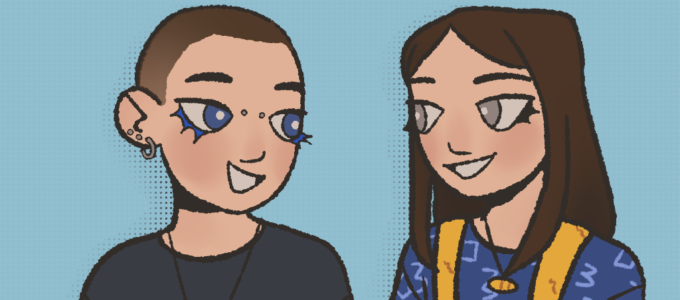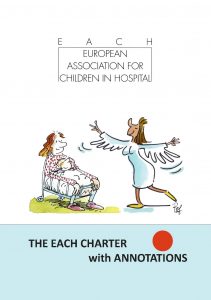
For #BEFRIENDLY Friday of Scottish Children’s Health Week 2021, 17 year old Alex discusses how being disabled has affected their friendships and how they sought out social interactions while managing their health.
Living with a disability can make it difficult to socialise regularly and comfortably. During the years in which my health declined, I found myself going out less often, and I started losing contact with my friends. My chronic pain made it difficult to go out for extended periods, while my chronic fatigue made me less likely to reach out to people and make plans. I would get short tempered and not want to talk to anyone if I was pushed to my limit. I started feeling left out and alienated from others around me. It took me a while to learn how to set my own boundaries, especially where my friends were concerned.
Every relationship should have healthy boundaries, but it can be especially important for disabled people, who’s boundaries can be seen as a nuisance to able-bodied people. I used to have a lot of trouble communicating my needs to my friends. I started to dread going out with them or talking to them, because the cost to my health after each interaction was so severe. Being able to explain and be listened to is incredibly important, for both physical and mental health. It can be difficult to tell my friends that I cannot meet up at a certain place because there aren’t enough seats where I can rest, or because it is not wheelchair friendly, but when I do tell them I am able to enjoy myself a lot more.
I used to go to an LGBT+ Youth Group that I loved. When I was tired and needed a break, I would doze off on the couch while listening to people chatting in the background, and nobody batted an eye at my behaviour. It was comforting being able to relax in other people’s company without having to drain myself by participating in conversation. Some people might have seen that as being antisocial if they weren’t aware of my health conditions, but everyone knew me well enough and understood; and besides, they knew how sociable I was when I wasn’t tired, and I was even known as the person who would first approach new people to start conversations and make them feel welcome. Situations like these definitely take their toll on me, which is why I must be careful with socialising too often. I find it important to pace my needs, even with my closest friends.
At the time, I didn’t know a lot of disabled people like me, and I felt alienated until I joined SMS:CONNECT, and I was finally able to meet people my age with similar health conditions. Commenting about relatable experiences and discussing how we cope with our symptoms was extremely comforting. If I was too tired to talk, I would turn off my camera and microphone, and listen, just like in the LGBT+ youth group I went to.
It was in SMS:CONECT, that I met Ozzie. We started messaging each other more and more over time, until we found ourselves texting almost every day, although there was never any pressure as we both understood each other’s limitations. A few months into our friendship we even sent handmade gifts to each other, which I treasure. We started meeting up in person, which has always been fun. Friendship doesn’t have to be deep conversations and regularly meeting up; sometimes it can be a picture of our pets and special gifts.
Friendships can be very important for our mental health, and that is why I encourage disabled people to reach out to accessible groups and explain your needs to you friends. Some services that I have found useful are Children’s Health Scotland Self-Management Service and SMS:CONNECT, and The LUNA Project. I recommend looking at services for your specific health condition, as you’ll get more options that way.
